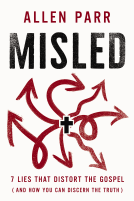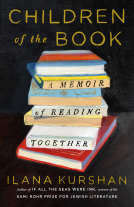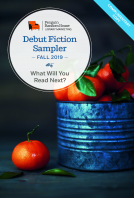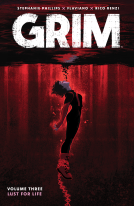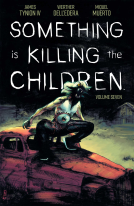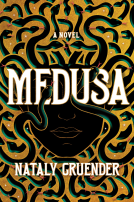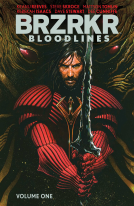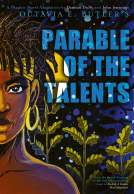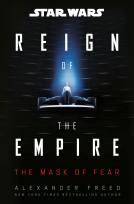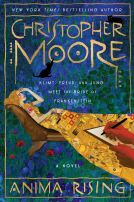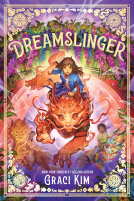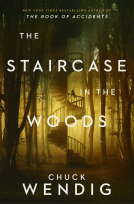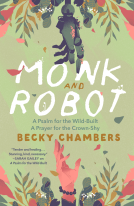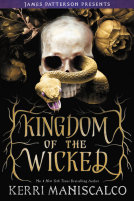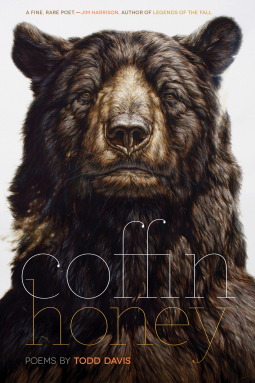
Coffin Honey
by Todd Davis
This title was previously available on NetGalley and is now archived.
Send NetGalley books directly to your Kindle or Kindle app
1
To read on a Kindle or Kindle app, please add kindle@netgalley.com as an approved email address to receive files in your Amazon account. Click here for step-by-step instructions.
2
Also find your Kindle email address within your Amazon account, and enter it here.
Pub Date Feb 01 2022 | Archive Date Feb 01 2022
Talking about this book? Use #CoffinHoney #NetGalley. More hashtag tips!
Description
Advance Praise
"Many poets feel that they know the natural world, but Todd Davis has absorbed this world fully into his heart and mind. He is a fine, rare poet."
—JIM HARRISON, author of Legends of the Fall and The Shape of the Journey
“Reading Todd Davis’s gorgeous poems, you can’t help but feel that the capacities of human vision, and also our appetite for exactly this way of seeing and naming, have been mysteriously, precisely increased.”
—JANE HIRSHFIELD, author of Come, Thief and The Beauty
Available Editions
| EDITION | Other Format |
| ISBN | 9781611864250 |
| PRICE | $19.95 (USD) |
| PAGES | 140 |
Featured Reviews
Unapologetic and unflinching, Coffin Honey is the first collection of poems by Todd Davis that I've read, and I think I will need to look into his other collections because this? This is beautiful.
There are several layers to each poem in this collection, and the meaning for each changes depending on how you read them. Admittedly, due to my lack of familiarity with specific historical events, figures, and such, some of the poems that contained references and allusions to the aforementioned went over my head. Thus, what I understand of those poems is probably far from what the poet originally intended. Nevertheless, I still enjoyed the observations of nature and humans.
One aspect that I really liked are the characters. Many of them aren't limited to a singular poem and together, they added another layer of cohesion to this collection. This makes it more of a story with different perspectives than just a collection of poems. Another would be the gorgeous imagery. It's breathtakingly vivid and at times, haunting. I spent so much time reading this collection, going over and over the same lines just to take in deeper the beauty and intensity of the imagery. The way violence is juxtaposed with serenity, life with death, nature with man-made—it's done so well that the impact these poems have becomes greater.
However, despite my love for the powerful contrasts the poems here have, I must also admit that the ones that touch on nature and man-made things can be too jarring. Certain poems also have a strong feeling of clinical detachment, if not for the entirety of the poem, then for parts of it. There are also ones that have a flow (when reading) that isn't as smooth as expected. Perhaps these are intentional, but for me, they made for an awkward read.
Everything considered, Coffin Honey is a must-read for those who prefer their poems more visceral and cutting. This collection is one of instinct, survival and violence. You won't find significant joy or tranquility from the pieces here.
 James K, Librarian
James K, Librarian
A selection of poems about the violence people do to one another as well as to the natural history. Trigger warnings abound, and so much heartbreak and hardship can be difficult to read, but Davis is a strong poet and makes the reader question why we continue in this way.
Todd Davis writes with haunting and memorable imagery. A poet that is new to me, but artful and enjoyable.
 Natalie H, Reviewer
Natalie H, Reviewer
I received an advance reader copy of this book to read in exchange for an honest review via netgalley and the publishers.
Coffin Honey is a very raw, eye opening and stomach churning collection of poetry. I struggled with parts of this book - not because the poetry wasn't good as it was wonderfully written - it was the hard reality of the book that I struggled with. This book is not about the beauty and comfort of nature its more about the damage we are doing to the world as humans, hunting, climate change, death, destruction and extinction. These poems were at times hard to read due to the vivid imagery they conjured into my mind. But, I think this is what the poet aimed for - to bring a shock value to the table and remind us what is happening across the world daily.
 Desislava I, Reviewer
Desislava I, Reviewer
Thank you so much to NetGalley for providing me with an arc in exchange for an honest review. "Coffin Honey" is a spectacular poetry collection by Todd Davis. The writing style is descriptive and incredibly graphic, it immerses you and connects you with the poems. I find the emphasis on nature and the execution truly fascinating, it is unapologetic, raw and absolutely realistic to the point that it takes your breath away. The imagery is incredibly frightened of how evocative the poems are, With all this being said, it is important to mention that this poetry collection does not focus on the peaceful and graceful part of nature. The focal point is the gruesome impact humans have on nature. While more poetry on subjects like hunting, extinction, climate change, etc., truly is needed, the way these poems were written made me genuinely scared. Apart from that, the only drawback i saw was the repetitiveness, which at times made the poems heavier than they were already. While this book is truly intriguing, I suggest reading a couple of reviews and making yourself familiar with the trigger warnings before reading it.
 Aaron L, Reviewer
Aaron L, Reviewer
Not at all what I expected, though it lives up to the title and cover image: there are certainly bears, and despite a persistent nature theme, the tone skews pitch black, often veering into the macabre. No soothing reflections on flowing water to be found here. The nature in <em>Coffin Honey</em> is harsh, violent, frequently repulsive. The opening poem culminates with intoxicated teens aiming a pickup truck at a deer's carcass, literally aiming to make its (and your) head explode. The tone never softens and only gets worse from there. Fair warning: there are multiple poems about rape and child abuse, with some horrific details I can't wash out my mind. Not exactly light reading!
It really is a strange book. Almost entirely narrative poetry, sometimes structured as prose poetry, sometimes with tight line breaks, it's not as lyrical or imagistic as what I usually look for in poems (enjoyment of poetry being almost entirely subjective, those are my biases). Instead it reads as a series of stern-voiced vignettes, often linked by recurring themes and characters--most notably Ursus, who functions alternately as ur-bear and something of a stand-in for the personification of the natural world facing annihilation at the hands of man. We frequently shift perspective from human eyes to those of Ursus and others, and the personification and anthropomorphosis can be a bit jarring. Since it's never all that abstract, the narrative focus means it's easy to tear through the book, for the most part. But it's the poet's penchant for graphic details (spoiler>e.g., a pedophile washing himself in a cold stream, contemplating castration, before being ripped apart by a bear</spoiler>) that makes me want to set the book face down from time to time. (Figuratively speaking, that is: I got a free digital copy from Netgalley in exchange for a review, so here's your disclaimer.) I read plenty of horror and have no issue with violence in context, but the tone and language here can feel a bit overwrought. It's not really the same thing, but I kept thinking of the pitch-black morbidity of early Cormac McCarthy (think <em>Child of God</em>) that could almost tip into parody if it weren't so consistently bleak.
Setting aside my expectations for more traditional nature poetry, I'll admit there's an almost apocalyptic thrum running through the whole collection. A primitive pulse that registers as rising madness, some kind of blood corruption reflecting back our global sickness, or a prayer for extinction. Read in that light, I think the collection mostly succeeds on its own terms, but go in with both eyes open.
 Librarian 459576
Librarian 459576
First time reading this writer, but I will definitely read more. Good writing and even though the content of the poems was harsh, that's what nature is sometimes. And the clash between humanity and the natural world is definitely not peaceful.
 Joshua G, Reviewer
Joshua G, Reviewer
Todd Davis is the author of five full-length collections of poetry: Winterkill (2016), In the Kingdom of the Ditch (2013), The Least of These (2010), Some Heaven (2007), and Ripe (2002); as well as of a limited edition chapbook, Household of Water, Moon, and Snow: The Thoreau Poems (2010). He edited the nonfiction collection, Fast Break to Line Break: Poets on the Art of Basketball (2012), and coedited the anthology Making Poems (2010). Davis is a fellow in the Black Earth Institute and teaches environmental studies, creative writing, and American literature at Pennsylvania State University’s Altoona College. His newest collection is Coffin Honey.
In Coffin Honey, Davis explores themes of violence and how people hurt each other. The book is broken into sections, each one reading like a short story told in narrative poems, which makes for some haunting connections between the poems. For example, the first section contains the poem “Taxidermy: Cathartes Aura” with lines like:
The bird’s spiraling descent
was unexpected, like when
his uncle touched him
in the cellar as he shoveled
coal for winter, telling him
he couldn’t have the fried
doughnuts sprinkled
with confectioner’s sugar
if he screamed
or told his mother.
Davis is tapping into some very real horrors in this collection, which makes for evocative and troubling poetry that lingers for the reader long after the book is closed.
These sections are separated by poems titled “dream elevator,” which touch back on some of the characters Davis has explored in the section. These add a mythic element to the book, as the boy in this section descends into
a tunnel
into vanishing
mountains
shaken
folded
with past sins
The form of this poem, as well as the mythic imagery, works well to capture the nightmarish aspects of these narratives and really serves to haunt the readers.
There are other elements of myth throughout, such as in the eponymous poem “Coffin Honey,” which has lines like
The beekeeper raises a bee-box lid
scrapes bodies
from comb, wax filling
behind fingernails
embalmed
in stickiness.
Here Davis is tapping into Greek and Egyptian mythology and folklore and using ancient symbols of death and passing to add layered nuance to his poems about human suffering and sorrow.
Overall, this is a moving collection of poetry. Todd Davis is able to connect with readers on a visceral level, exposing humanity’s capability for great harm to each other and the world. It’s a haunting book of very real horrors as well as mythic horrors, all in an accessible poetic style. This is a strongly recommended collection that any fan of poetry or horror poetry will want to read.
Readers who liked this book also liked:
Octavia E. Butler; Damian Duffy
Comics, Graphic Novels, Manga, Multicultural Interest, Sci Fi & Fantasy
